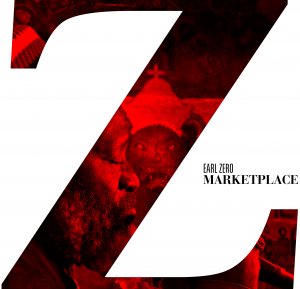Earl Zero has been around the roots reggae scene a long time. That’s perhaps because he has the perfect voice for it: essentially soft and supple, therefore capable of the subtleties required of the genre, yet also expressive, carrying hints of both defiance and “sufferation.” Add to that Zero’s rhythmic sense and consistently clear enunciation and you’ve got a vocal performance you can take great pleasure in listening to. Of course, then you need to add the instrumentation, production and all that, and fortunately there’s lots of pleasure to be had there too.
The downside comes with the lyrics. The subject matter is mostly in the Rastafarian mode, with some lovey-dovey stuff thrown in, such as the title song. Okay, that’s to be expected, and wouldn’t be a problem if only Zero had used some imagination instead of merely flipping through his dog-eared copy of the unnecessarily slim Rasta phrasebook. (I assume Zero is the perpetrator of the words he so capably sings, although the liner notes don’t actually say so.)
So that’s the frustration in listening to Marketplace: strong music, weak words. “A Thing Called Love,” for example: its unique intro is a thing of invention and quiet beauty, and the tune itself is a serviceable vehicle for a very fine vocal, creative percussion and notable guitar. But the lyrics! However well-intentioned, they’re hopelessly trite and naive, and the repeated question “Have you ever heard of a thing called love?” surely invites, in fact deserves, a sarcastic response (I’ve come up with a bunch, but you can invent your own), which can’t help but diminish the effectiveness of the song.
Something similar happens with the confusing “Roll Call,” which is roughly based on a metaphor of a school or meeting of some sort being “called to order” and includes this litany of non-sequiturs: “I and I don’t want no war in this time/only Jah love can blaze the fire/only love can make our children higher/gotta make way for the new generation/for they are the children of tomorrow/gotta make way for the new millennium….” Even the track’s great horn riff can’t save the song from lyrics like that.
But back to the positive. The backup vocalists do a fine job, as do the various instrumentalists, but in addition to Zero’s vocal performance, I want to highlight the album’s producer, Siahvash Dowlatshahi. It’s a name I’d never heard of before, but sure hope to see again in association with future reggae albums. He or she clearly has a way with the music, including dubs, of which there are several on Marketplace. Maybe next time Dowlatshahi can have some influence over the lyrics too.






